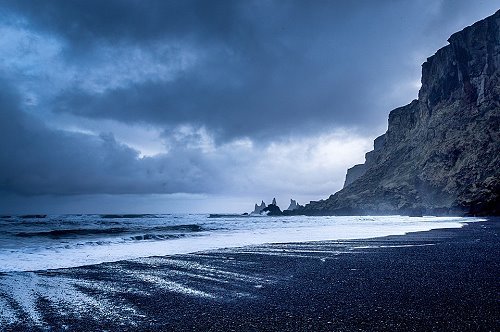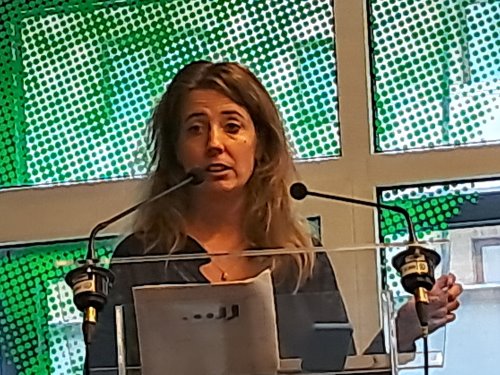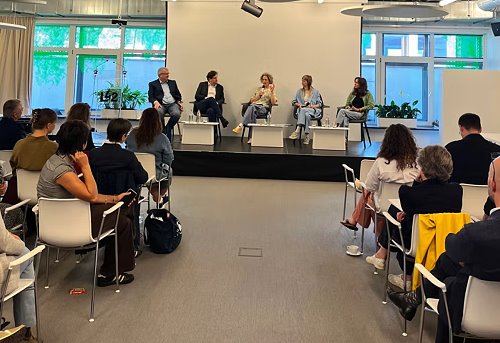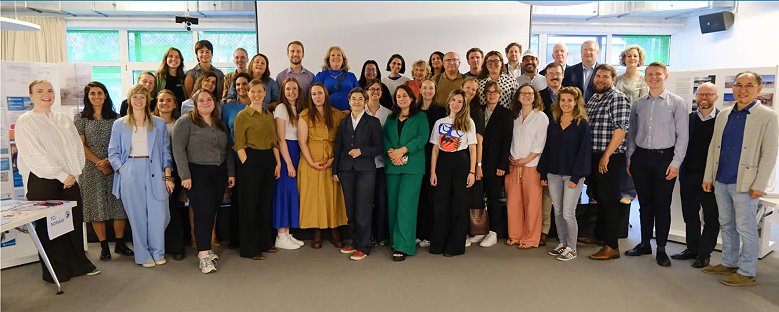Co-creating the Future of Marine Policy?!
 “Living by the sea, I’ve witnessed first-hand the social, economic and environmental challenges faced by coastal communities. To solve these problems, we have to work together,” says Maiken Bjørkan, Project Coordinator of the EmpowerUs research project, Nordland Research Institute, Norway. 16 partner organisations from Bulgaria, Cyprus, Denmark, Finland, Germany, Ireland, Spain and the UK had done case studies with coastal communities to figure out what might work best to connect these communities better to surrounding regions and national economies.
“Living by the sea, I’ve witnessed first-hand the social, economic and environmental challenges faced by coastal communities. To solve these problems, we have to work together,” says Maiken Bjørkan, Project Coordinator of the EmpowerUs research project, Nordland Research Institute, Norway. 16 partner organisations from Bulgaria, Cyprus, Denmark, Finland, Germany, Ireland, Spain and the UK had done case studies with coastal communities to figure out what might work best to connect these communities better to surrounding regions and national economies.
During the three years of the research, each project site had had a financial allocation to map the assets of the place, the ownership of the land and means of production and the extent to which benefits were shared across the community, the type of governance, the connectivity to the sea and the national economy e.g. in terms of transport, IT infrastructure, the skill profiles available, the knowledges about the place, its past and those relevant for desirable futures.
The final project meeting in Brussels showcased that in all their diversity, the regions studied had in common that they wanted to have a bigger say in governance as it affected their living and working conditions. The prevailing feeling was one of exclusion in that the occasional consultation was not enough to increase distributional justice and provide the recognition and longer-term participation for co-shaping their futures.

Monica Veronesi of FAMENET reported on support activities at local level in 18 EU countries
The research showed clearly the craving for bridging the gap between global principles and local realities. The common thread was to establish respectful dialogue, recognition and capacity strengthening to build trust and empowerment. During the project staff’s interaction with people in the communities a change of perceptions of self and opportunities was already palpable. Some testing of evidence-based nature-based solutions could feed into policy briefs to steer future courses of analysis, planning and action.
These findings were corroborated by a summary of experiences with implementing activities supported by different mechanisms under policies of DG MARE. The most successful ones were by some 300 FLAGs, local action groups in 18 EU Member States. Each group essentially developed an area-based local strategy for innovation, networking, bottom-up development planning and implementation and fostering public-private partnerships. 10% of the funding came from EMFAF, but other sources were also available.
 Stephen Davies, representing the EU’s DG MARE, outlined the general features of the Ocean Pact intended to reduce fragmentation of policies arising from frictions between poorly coordinated departments and instruments. The six pillars were still being further developed. A stakeholder consultation was planned for 2026 to make some of the general provisions more concrete and operational.
Stephen Davies, representing the EU’s DG MARE, outlined the general features of the Ocean Pact intended to reduce fragmentation of policies arising from frictions between poorly coordinated departments and instruments. The six pillars were still being further developed. A stakeholder consultation was planned for 2026 to make some of the general provisions more concrete and operational.
The panel discussion with representatives of other complementary research projects underscored the need for greater policy coherence to reduce waste of resources and act on the evidence of much empirical work and research. More transparency, use of story telling, and use of stakeholder consultations was recommended to trigger more local engagement and improve the interface between local realities and higher level policies as well as the science-policy interface.

Final Group Photo
